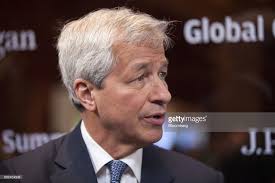JPMorgan Chase & Co today said that tax law changes would help future profits by not only reducing the amount it pays the federal government but also by stimulating more business.
The bank, which is the biggest U.S. bank by assets, recorded $2.4 billion in one-time charges in the fourth quarter related to the tax law changes. However, it expects its effective tax rate to drop to 19 percent this year from 32 percent last year, which will save it billions of dollars.
The sweeping tax changes President Donald Trump signed into law in December, designed to kick-start economic growth, slashed the U.S. corporate rate to 21 percent from 35 percent.
Reuters reports that as a result, the bank said it expected corporations to borrow more, offer more stock and pursue more mergers and acquisitions, all of which would boost revenue.
Although the bank plans to use some of that money for compensation, business investments, helping rural communities and other uses, it will mostly boost profits, executives said on a call with analysts.
JPMorgan’s Chief Financial Officer, Marianne Lake, was quoted as telling analysts during a call that “much of it will fall to our bottom line in 2018 and beyond.”
The bank’s shareholders should benefit as JPMorgan returns more capital to them through dividends and stock buybacks, she said.
Following the tax overhaul, several financial companies, including Citigroup Inc and Morgan Stanley, have warned investors that they will face short-term pains. However, they expressed optimism that over the longer term, the changes are widely expected to generate gains for large U.S. corporations.
The Chief Executive, Jamie Dimon, said that some of the benefits will likely be lost as banks vie to offer better deals to customers, starting with businesses where prices change more quickly.
JPMorgan’s charges related to a one-time repatriation tax on income it has kept abroad and adjusting the value of its deferred tax assets and liabilities. The bank says it does not expect to bring any substantive amount of the foreign cash home, because it has capital and liquidity requirements abroad.






